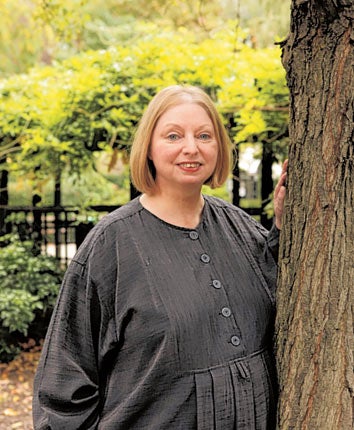The Week In Radio: In short, cutting stories is bad news for the BBC

Your support helps us to tell the story
From reproductive rights to climate change to Big Tech, The Independent is on the ground when the story is developing. Whether it's investigating the financials of Elon Musk's pro-Trump PAC or producing our latest documentary, 'The A Word', which shines a light on the American women fighting for reproductive rights, we know how important it is to parse out the facts from the messaging.
At such a critical moment in US history, we need reporters on the ground. Your donation allows us to keep sending journalists to speak to both sides of the story.
The Independent is trusted by Americans across the entire political spectrum. And unlike many other quality news outlets, we choose not to lock Americans out of our reporting and analysis with paywalls. We believe quality journalism should be available to everyone, paid for by those who can afford it.
Your support makes all the difference.The silly season is abolished, the news agenda is bulging and words like "armageddon" are thrown around whenever anyone discusses the economy. Yet at times even the most hardened news junkie can feel like they have overdosed on current affairs. You may recognise the symptoms. A gnat's attention span, coupled with the compulsion to be in constant touch with the news agenda and to relay it to others via Twitter. And this addiction – for that is what it is – is enabled by an ever-increasing stream of fresh, up-to-the-minute information. Current affairs creep is all around us. The latest instance, however, is causing controversy.
Gwyneth Williams, the controller of Radio 4, has decided to cut the number of short stories on the network from three to one a week, to make room for an extended World At One. "WATO has felt increasingly hemmed in at 30 minutes," she said. "Stories now develop faster and need a fresh eye by lunchtime. Parliament sits in the morning now and WATO needs to cover emerging issues." But the decision to chop short stories has provoked an outcry. Protesters – from the Society of Authors and Equity to writers including Hilary Mantel, Philip Pullman, Julian Gough and Michael Holroyd – complain that the BBC is helping to extinguish a struggling literary form which is, ironically, exquisitely suited to radio.
When she heard the words "pointless cultural vandalism", Williams reached for Matthew Arnold's Culture and Anarchy and reminded us that his definition of culture as "the best that has been thought and said in the world" was her mission statement. There would still be 100 stories a year and anyone accusing her of trampling the grave of Chekhov would be mistaken.
While no-one doubts Williams's moral seriousness in handling the jewel that is Radio 4, this episode will give pause to any news junkie who understands fiction. One thing short stories do is drop a point of stillness into the day, a small perspective, entirely removed from the current affairs agenda. They are the lower case in a world of capital letters. At their best they express life more truthfully than any news broadcast. Stories like "Last September", an Afternoon Reading from the Dutch writer Cees Nooteboom, transported the listener far from the world of phone hacking and lone gunmen with an entirely different take on memory and death.
By chance or design, Opening Lines, the Radio 4 series which gives short-story writers their radio debut, began this week. "Writing In Chalk", Helen Barton's tale of a young girl struggling to read and write, was shot through with images that beautifully expressed a non-verbal world. The child blamed her difficulties on her illiterate mother. The two of them tried reading with "the words lying there like boulders which neither of them could climb". Like news, short stories can be good or bad, but these small bulletins from life as it is slide like a knife into the bloated guts of the 24/7 current-affairs agenda.
Yet delivering current affairs takes technique too, as Boris Johnson found when filling in for Nick Ferrari on LBC. Blasting off with martial music to herald his "coup", he mounted an hour-long mayoral broadcast, making a bet to lose a stone by Christmas and taking an adoring call from Barbara Windsor – "Boris, my darling, you've brought community back into London!" In the end, though, his pause-strewn delivery was more Robert Peston than PG Wodehouse and he admitted he sounded like "a politician trying to do a radio show".
But who cares? We've got plenty of broadcasters, but you could count on one hand the number of politicians who could easily debate Culture and Anarchy with Gwyneth Williams.
Join our commenting forum
Join thought-provoking conversations, follow other Independent readers and see their replies
Comments